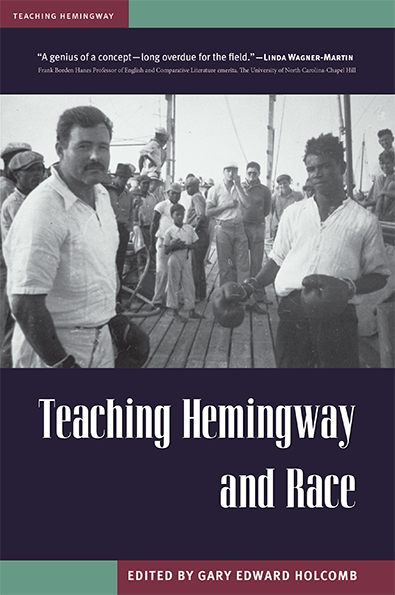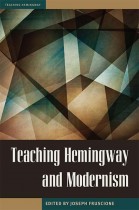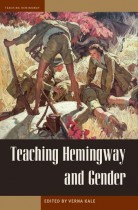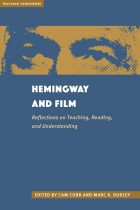Teaching Hemingway and Race
Hemingway Studies, Teaching HemingwayGary Edward Holcomb
Teaching Hemingway and Race provides a practicable means for teaching the subject of race in Hemingway’s writing and related texts—from how to approach ethnic, nonwhite international, and tribal characters to how to teach difficult questions of racial representation. Rather than suggesting that Hemingway’s portrayals of cultural otherness are incidental to teaching and reading the texts, the volume brings them to the fore.
Included in the collection are Marc Dudley’s instruction on how students may recognize “multiple selves at work in a text”; Margaret E. Wright-Cleveland’s approach to In Our Time, informed by American studies and women’s studies; and Ross Tangedal’s discussion of imperialism in Hemingway’s two nonfiction books.
Other topics addressed include questions of developing vigorous learning outcomes when teaching Hemingway, Hemingway’s fascination with Latin America, teaching the Harlem Renaissance through Hemingway, discussing Hemingway’s “Soldier’s Home” and Langston Hughes’s “Home” in tandem, discussing the black presence in The Sun Also Rises, and a means for comparing how Jean Toomer, Ernest Gaines, and Hemingway deal with the issue of race.
This latest volume in the Teaching Hemingway series includes ten essays by leading scholars that place racial markers in their historical context, while also illuminating those connections for scholars, classroom teachers, and students. Readers will find it refreshing and enlightening to encounter essays that juxtapose Hemingway’s work alongside Alain Locke’s The New Negro and explore Hemingway’s influence on Jean Toomer, Langston Hughes, Ralph Ellison, Ernest Gaines, and other black writers.





